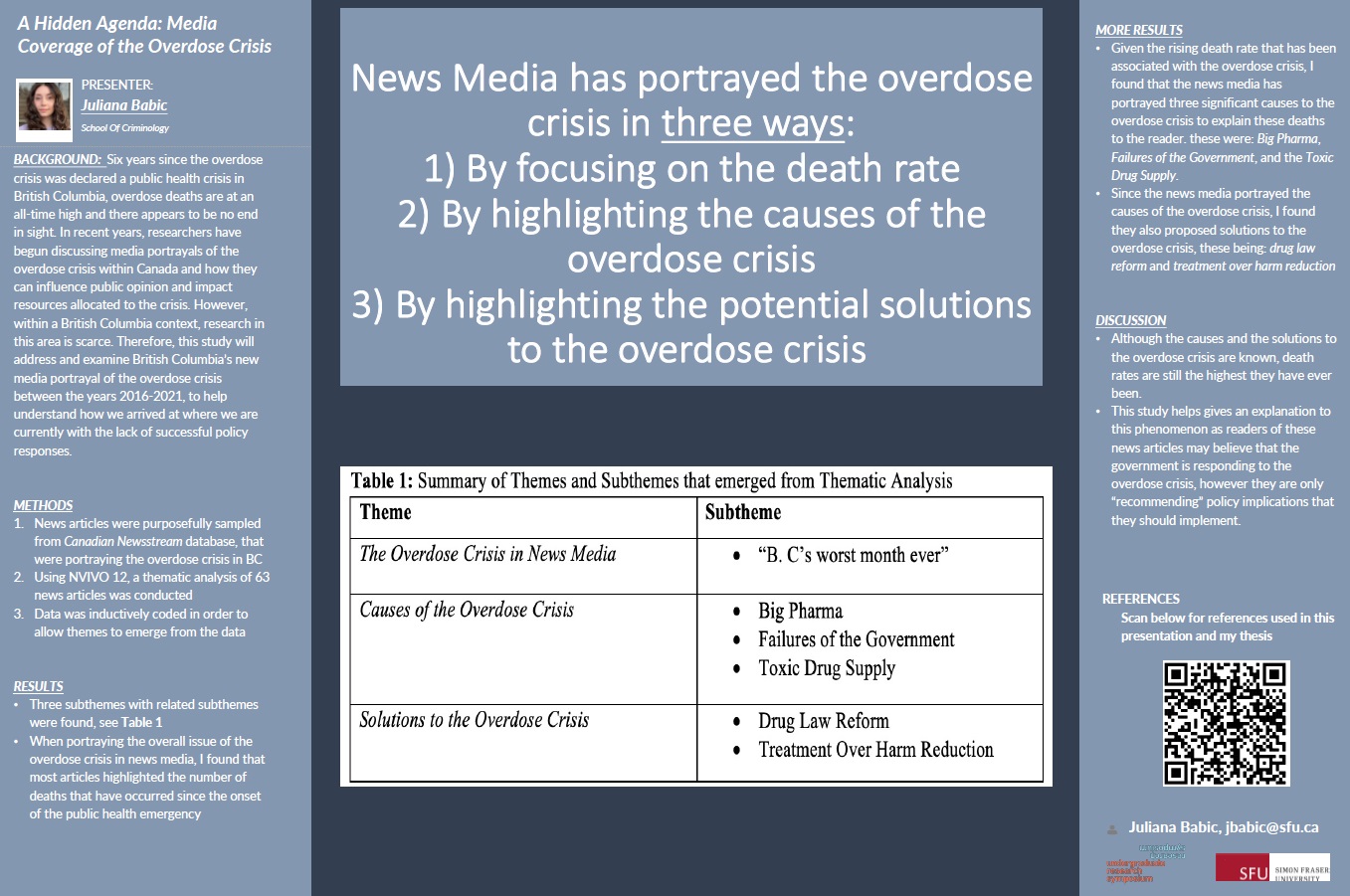Hidden Agendas: Unequal Media Coverage of the Overdose Crisis
Main Article Content
Abstract
Presently, British Columbia is experiencing an overdose crisis. In recent years, researchers have begun discussing media portrayals of the overdose crisis within Canada and how they can influence public opinion and impact resources allocated to the crisis. However, within a British Columbian context, research in this area is scarce. This is particularly concerning, as Vancouver is the epicentre of the overdose crisis, and the city’s overdose rates continue to rise . The current study will address and examine British Columbia’s news media portrayal of the overdose crisis between the years 2016-2021, to help understand how we arrived at where we are currently with the lack of successful policy responses. Using an inductively coded thematic analysis of 65 news media articles, this research seeks to answer the following question “how are the issues, population, and responses of the overdose crisis framed within the media and how do these impact public opinion and policy resources?”. In answering this question, this study aims to determine how the framing of this crisis can help influence policy and public opinion about overdose as a public health issue, while reducing the stigma associated with it. Ultimately, analyzing news media can help provide insight into public opinion about these issues, affecting policy responses given to this crisis.
Faculty Supervisor:
Dr. Alissa Greer, School of Criminology, Simon Fraser University
Article Details

This work is licensed under a Creative Commons Attribution-NonCommercial-NoDerivatives 4.0 International License.

